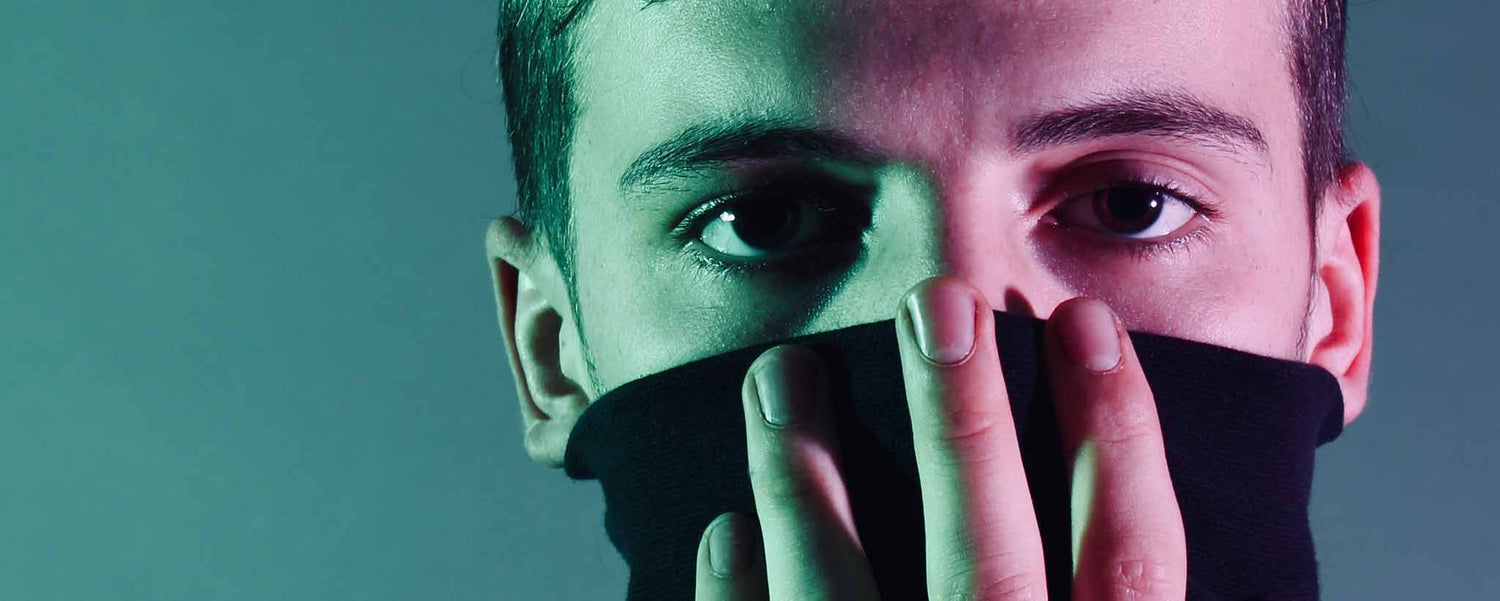Early oral cancer symptoms are often unnoticed. Late-stage throat cancer symptoms like hoarseness or persistent coughing require immediate evaluation.
Publish 25 January 2022
⚠️ Use Discretion: Graphic human anatomy.
Oral Cancer Discovery

I came across an anxious neighbor, Stan, last night. His mask covered the lower half of his face. But he appeared weak and lethargic. I asked if everything was all right. After some hesitation, he said “I am in trouble” and pulled down his mask.
The sight gave me goosebumps. I never saw his full face like this. His upper lip was swollen with sores. In place of his lower lip and jaw was a prothesis. [1] Neither of us could control our emotions. After regaining composure, he told me the whole story.
Don’t Ignore The Signs
It all started late last year. He went to a routine dental checkup, and the dentist told him to go directly to the hospital. At the oncology department, surgeons diagnosed his cancerous jaw. My neighbor detailed his symptoms of oral cancer. [2,3]
- Persistent mouth pain
- Persistent mouth sores
- White/red patches on gums
- Numbness around mouth/
tongue - Pain in jaw and teeth
- Voice changes
- Weight loss
- Persistent bad breath/
cough

Advanced-stage oral cancers. Top left: Tongue cancer; Top right: Lip cancer; Bottom left: Tongue cancer; Bottom right: Lymphadenopathy [4]
Coughing Out of Control
Stan ignored the initial cough, which became persistent, produced blood, and caused chest and back pain while coughing. He further added that early signs and symptoms of oral cancer are mistaken with other conditions like a cold, toothache, or TMJ. [5] This is what led him to the dentist. I asked Stan, how to differentiate between a normal cough and cancerous cough? He listed some signs of a cancerous cough. [6]
- Cough that doesn’t go away and get worse with time
- Cough with blood or rust colored sputum
- Deep coughing with chest pain
- Shortness of breath
Beyond The Mouth

He told me that a cancerous cough could affect other parts of the body if not treated properly and timely. When cancer spreads, it would cause bone pain, swelling of lymph nodes, nervous changes, and yellowish skin.
I asked Stan how he got oral cancer. In his case, it was prolonged chemical exposure at work. He told me other causes of oral cancer that his doctor shared. [6]
- Smoking, chewing or snuffing tobacco increase the risk of oral cancer.
- Excessive alcohol drinking can dramatically increase the risk of oral cancer.
- Oral cancer can also be genetic.
- Exposure to UV rays can cause lip cancer.
Preventative Measures
I became a little uneasy listening to all these things because my father was a smoker and alcohol abuser. Stan shared preventative measures to save me from such dramatic outcomes. He told me that if someone is diagnosed with oral cancer at the first stage, it is easy to treat.
Everyone should examine their lips and gums using a bright light and mirror. Moreover, go to the dentist every 3–4 months. Here are some preventative measures Stan’s doctor told him:
- Quit smoking and using tobacco products.
- Eat a balanced diet.
- Don’t drink too much alcohol.
- Use sunscreens while going out to limit your exposure to the sun.
These sound like practical tips for preventing oral cancer. I find all this information so helpful, that I want to share it with you. Hopefully, you will also be alert to early signs and regular dental checkups. This can prevent you from going through Stan’s drastic ordeal.
To support the writing of useful articles about oncology, ClinicalPosters sells human anatomy charts, scientific posters, and other products online. You may sponsor specific articles, become a ClinicalNovellas Member, or remit a small donation.
ClinicalPosters sells human anatomy charts, scientific posters, and other products online to offset expense of the writing useful articles about oncology. Slide extra posters into DeuPair Frames without removing from the wall.
Show your support by donating, shopping for ClinicalPins, becoming a ClinicalNovellas Member, or leaving an encouraging comment to keep the research going.
To support the writing of useful articles about oncology, ClinicalPosters sells human anatomy charts, scientific posters, and other products online. You may sponsor specific articles or remit a small donation.
ClinicalPosters sells human anatomy charts, scientific posters, and other products online to offset expense of the writing useful articles about oncology. Slide extra posters into DeuPair Frames without removing from the wall.
ClinicalPosters sells human anatomy charts, scientific posters, and other products online. You may remit a small donation or become a ClinicalNovellas Member.
You can support the writing of useful articles about oncology by sponsoring specific articles, becoming a ClinicalNovellas Member, or remitting a small donation. Visible content is optimized for device size.






 Romance & Health Intertwine. Fall in love with a captivating romance miniseries that explores the essence of well-being. Become a ClinicalNovellas member for heartwarming tales.
Romance & Health Intertwine. Fall in love with a captivating romance miniseries that explores the essence of well-being. Become a ClinicalNovellas member for heartwarming tales.


